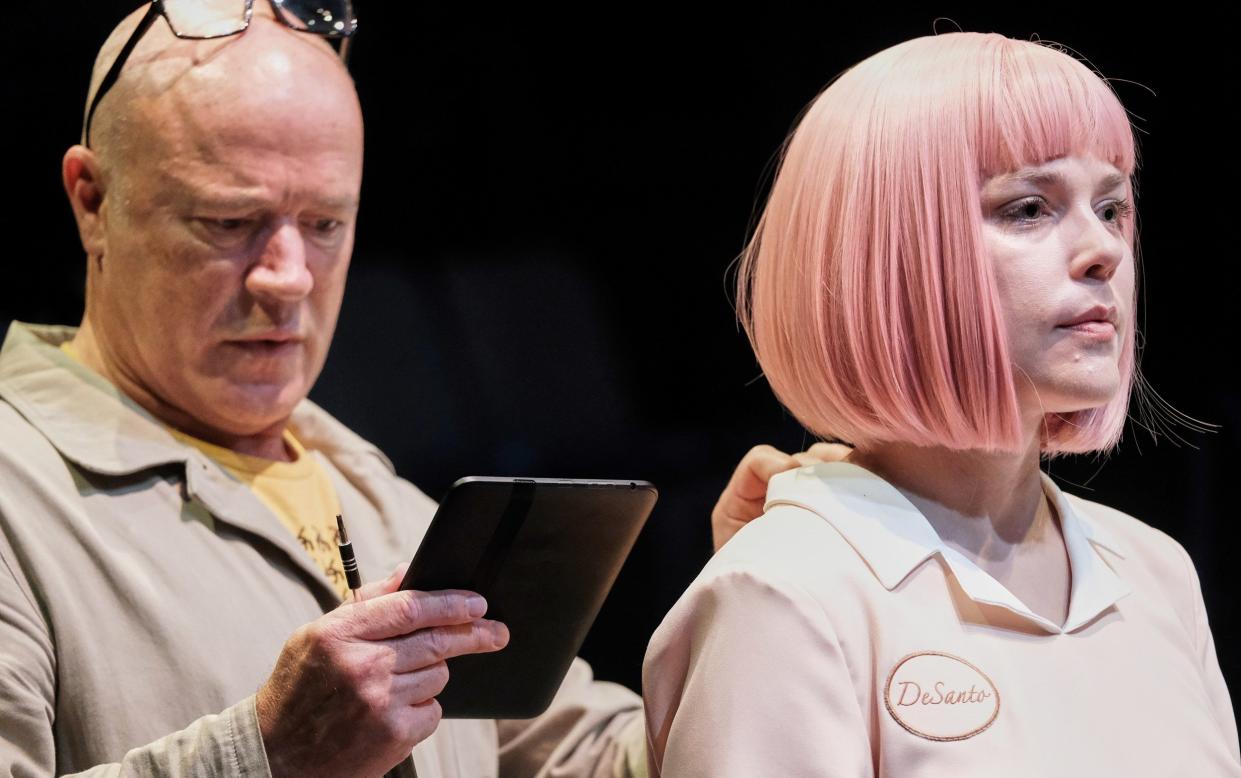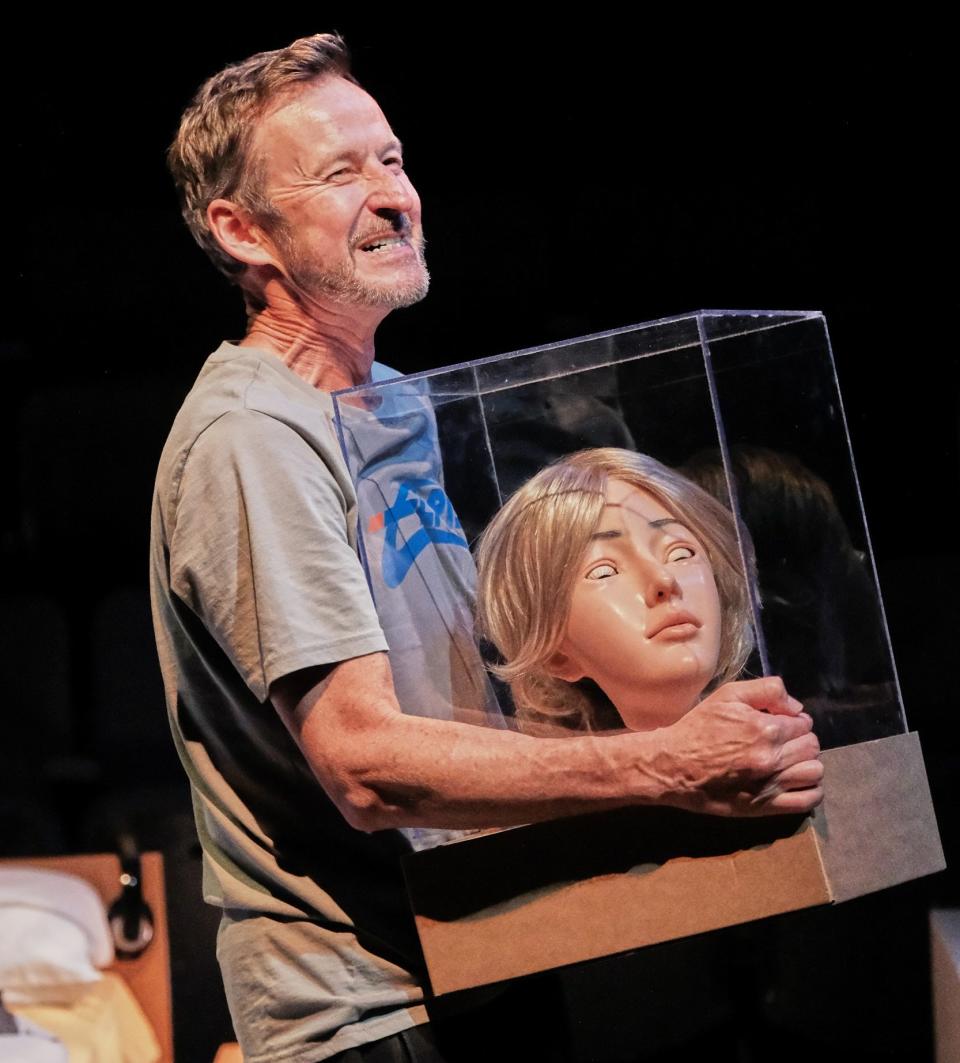Constant Companions: Ayckbourn dives into AI – but the comedy’s more Carry On

I take my hat off to the prolificacy of Alan Ayckbourn, the indefatigable, octogenarian playwright who has now staged an astonishing 89 plays. However, to his latest opus, Constant Companions (which he directs for the Stephen Joseph Theatre), I feel compelled, sadly, to put my headwear back on again.
As with his previous drama, Welcome to the Family (which premiered at the Old Laundry Theatre in Bowness-on-Windermere back in May), the new work reflects Ayckbourn’s fascination with the dangerous possibilities of Artificial Intelligence (AI). The problem is that the more futuristic the dramatist tries to be, the more old-fashioned he becomes.
In its opening moments – in which Andy Cryer’s sex-starved, middle-aged Don excitedly takes delivery of his self-assembly robotic woman – the play adopts the comic tone of a Carry On film. Indeed, even late in the piece, when the robot does a mischief to Don’s home because he ordered his AI “constant companion” with extra-large breasts, it still seems like the latest addition to the oeuvre of Sid James, Barbara Windsor et al.
This farcical, sexless comedy is one of three more-or-less interconnected plotlines, each of which addresses aspects of the AI conundrum. In the second, we find Alexandra Mathie’s high-powered lawyer Lorraine and her junior colleague Sylvia (Georgia Burnell) working in a high-tech office block in which the security staff (including Richard Stacey’s stereotypically stilted JAN 60) are all androids.
The final narrative thread involves Don’s pal Winston (an android engineer, played by Leigh Symonds) attending a call-out to the palatial home of the wealthy De Santos family. Here Mrs Andrea De Santos (Tanya Loretta-Dee) insists that a female domestic labour android (Naomi Petersen’s ED) has managed to seduce her 17-year-old son.

Ayckbourn’s piece paints a near future in which AI robots develop an independence of thought that enables them to equal and, rapidly, supersede humans. It is nicely constructed and well-performed (save for Cryer’s Don, who is the kind of over-acted, working-class caricature one might expect to see in an old Ealing comedy).
The difficulty is that – in contrast with a great comic drama such as Shakespeare’s Twelfth Night – the play is such an assiduously light comedy that it largely fails to express its bleaker intentions.
The drama’s conclusion alludes to something profound about a diminution in real human contact (which is, one might argue, already a current reality). However, it is too little, too late for a play about the future that is simply too rooted in a comedic past.
Until Oct 7. Tickets: 01723 370541; sjt.uk.com

 Yahoo News
Yahoo News 
